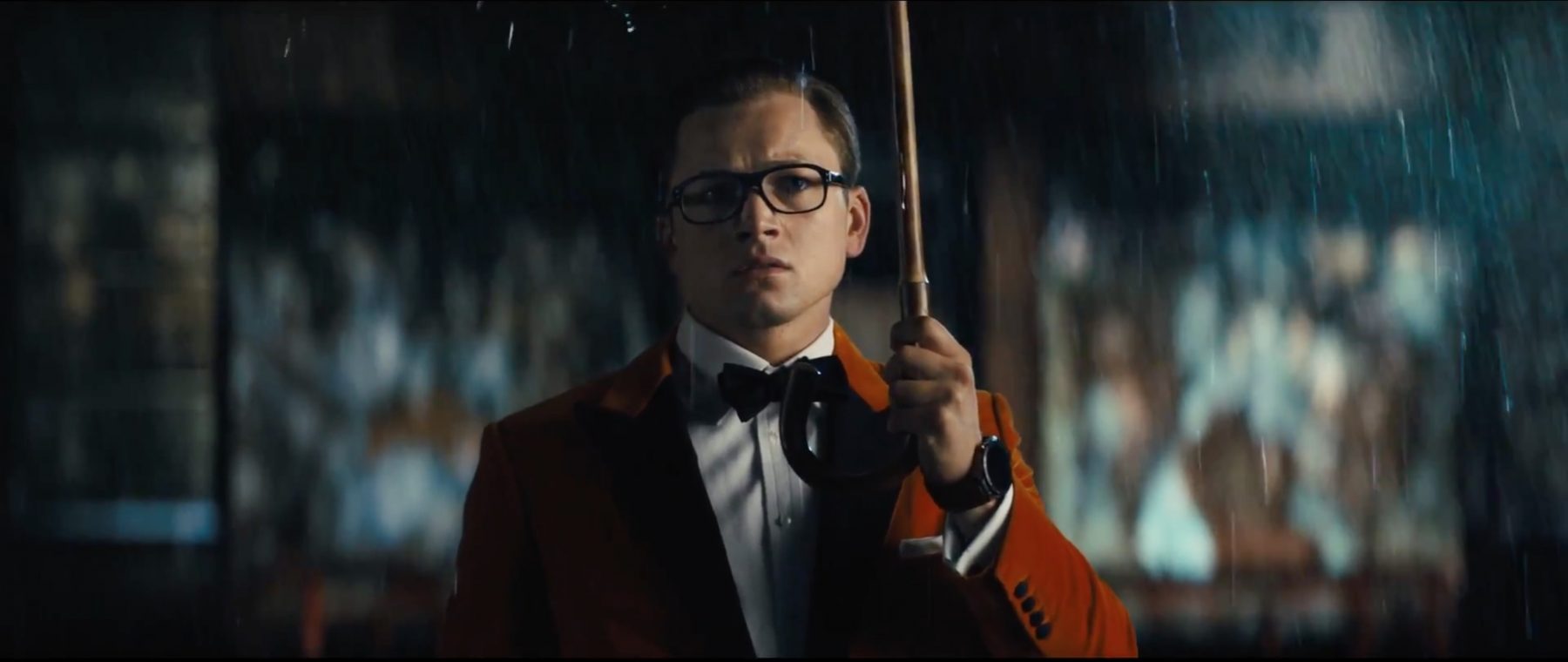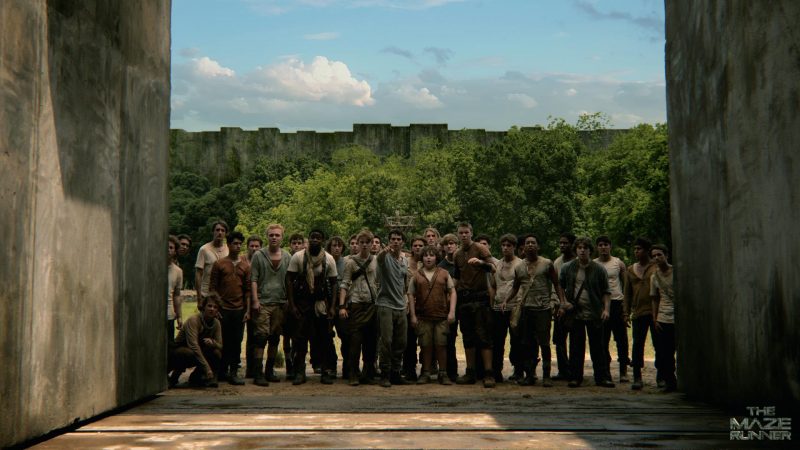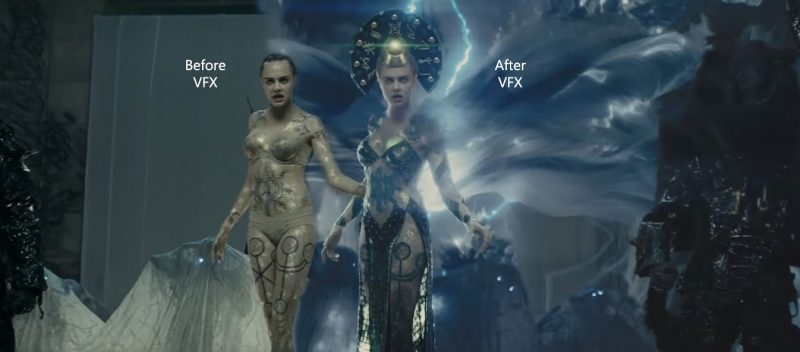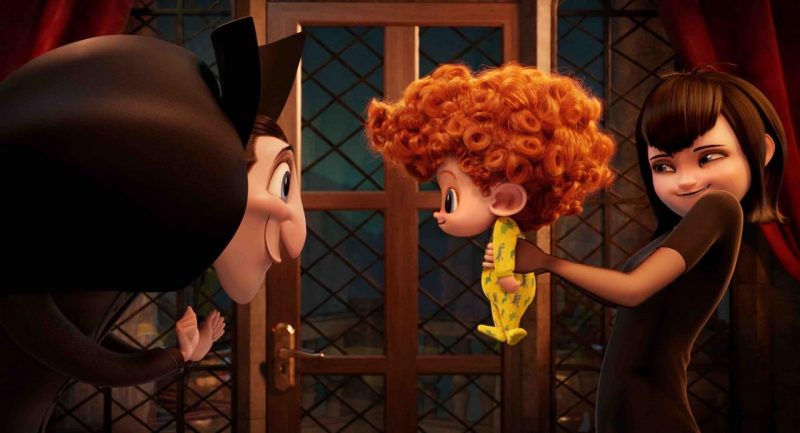
You have an interesting background. How does someone with a Bachelor of Science in Zoology/Animal Biology end up working in VFX (Visual Effects)?
I was considering my career outlook and looking at where other graduates went (usually back to get another degree). I didn’t have the desire to continue going to school, so I started looking for a job right after I graduated. I saw a job posting online for “Production Assistant” at Lux Visual Effects Inc. I knew what VFX were and that they were cool, but had no idea about working in the VFX industry.
What does a VFX Coordinator do?
It varies from company to company. At Lux, I started as a PA but soon began doing tasks that are normally done by the Coordinator, until I became one. A coordinator is usually responsible for scheduling: talking with artists to find out their ETA’s (when they expect to finish their shots), and making sure we hit deadlines. I sorted and distributed onset camera data to the artists. When we shared work with other studios, I was a vendor liaison, and took notes during client review sessions. At that time, we shipped physical hard drives to clients, so I ensured it was mailed to them without any errors. It probably wasn’t expected of me, but I did Q.C. work, checking frame-by-frame to make sure we didn’t send any files with technical bugs or mistakes. I even did some editorial work, because the previous coordinator also did some editing.
How did your job change when you became a Coordinator at a larger studio: Method?
In Method I started communicating with other departments, both horizontally (between lighting and compositing departments, for example) and vertically (e.g., between different leads and supervisors). There were only about 20 people at Lux, so they would just talk face-to-face. Method had bigger shows and more people, so there was more data to handle and more inter-departmental communication to facilitate.

How is that role different from your current role as Associate Production Manager at Sony Pictures Imageworks?
Sony has even more people and their own hierarchy, so there are more levels within the Production team. After you gain enough experience as a VFX Coordinator, you can move up to APM, my position. An APM is basically a DPM (Digital Production Manager) in training, because that is a big jump. From DPM, the next highest role would be Digital Producer, who works under the VFX Producer.
But to answer your question, the main difference is that I’m no longer responsible for only one department. I’m also learning about general show setup, managing resources, render queue priorities, and much more. On Kingsman: The Golden Circle, I worked with the lighting and environment departments. Now I’m working on a SPA (Sony Pictures Animation) with the C-FX or Character FX department, which focuses on cloth and hair simulations.
Is there specific software that you need to know how to use for your job?
A lot of companies use Shotgun nowadays. Sony has their own in-house tool. They offered me a week of training before starting work on production to learn the basics. I learned more tips and tricks from coworkers and experience.
You have worked at 3 different VFX studios: Lux Visual Effects Inc., Method Studios, and Sony Pictures Imageworks. Do they operate quite differently?
Lux is smaller, so there’s much less structure and it is really organic. You do whatever you can and the best you can to get to the finish line. For some people, that is an ideal environment. Method is a medium-sized studio in Vancouver with a team structure, a clearer hierarchy, and more formal client reviews. They require experienced artists and gurus who can troubleshoot. For big companies like Sony, there is a lot of structure and people to inform before you can make decisions. But it’s quite well-organized, which is why they are known for having a great pipeline.
What skills do you think are most needed for working in visual effects? Technical, artistic, or soft skills?
It depends on the job. Artists obviously need to have artistic skills, since it is their job. But you always remember someone who is enjoyable to work with, so soft skills are important too. Leads need more technical skills, I think, because most of the time they’re doing the hardest shots, troubleshooting, and debugging other artists’ work. For supervisors and production, soft skills are the most important because so much communication is required.
How do you deal with the stress of deadlines and unhappy clients?
I don’t feel stressed very often. I think it’s because I stayed focused on my role. Unless you’re at the very top, you’re not responsible for the big issues of keeping the client happy. There is almost always someone above you whose job is to worry about those things, while you only have to focus on excelling in your role. If an artist is really struggling with their shot and can’t meet the deadline, the worst thing they can do is tell no one that they’re struggling. It’s important to say when you don’t think you can finish something so a coordinator can find help for you.
What’s the hardest part of your job?
It can be challenging to ask your artists at the last minute if they can work OT (overtime) or on the weekends. We try to give people a heads-up but sometimes unexpected situations happen. When clients need work done by a certain time, we have to deliver that message to the artists. For Suicide Squad, the clients were really uncertain how the Enchantress character’s costume should look. The actress was filmed without a complete costume so they could choose a design later in post to add on top. The FX lead came up with many, many versions, which were quite different from one another. Some had a nebulous texture while others had spaghetti-like strings floating in the air around her. He even had to work on Christmas. Everyone was relieved when a final version was selected.

What do you like most about your job?
Seeing the cool stuff! I don’t mean the finished product, but rather seeing a cool explosion that an FX artist in my department created, for example. I feel proud and happy, especially when their hard work is approved by the client. We get so happy to mark anything as “done”, no matter how small.
Is there a film or series you would like to work on in the future?
Kingsman 3. I hope they make a sequel because I really enjoyed working on Kingsman: The Golden Circle! The people and the films are great!
How do you think the VFX industry has changed since you started working in it 7 years ago?
There is more diversity: Vancouver used to only work on TV shows mostly, but now there is feature film work and many different types of projects. There are also more studios. So it has become easier to find work.

What advice would you give to someone wanting to work in the VFX industry?
If you want a glimpse into the VFX industry, working as a PA is one of the easier jobs to get. It’s an entry-level job that allows you to see how studios work and the different types of jobs. Bigger studios like Method or Sony tend to keep production staff, which may appeal to people looking for stability. There really is no one path into VFX. People come from all different backgrounds.
If you want to work in production, be humble, make friends and connections, and learn everything you can. Stay positive! Don’t get emotional or take things too personally. Being organized is also important, since you have to deal with lots of information and be able to communicate it well.
Thank you for your time, Yi.
Thanks for giving me a chance to talk about and reflect on my job.
Interview by Andrew Zeller. August 15, 2017
Connect with Yi Shen on Linkedin.